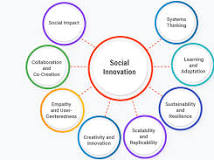The Power of Community Dialogue
In today’s fast-paced and interconnected world, the importance of community dialogue cannot be overstated. Community dialogue refers to the process of open and constructive communication among members of a community, where ideas, opinions, and concerns are shared and discussed.
One of the key benefits of community dialogue is its ability to foster understanding and empathy among individuals with diverse backgrounds and perspectives. By engaging in meaningful conversations, community members can gain insights into different viewpoints, leading to greater tolerance and cooperation.
Community dialogue also plays a crucial role in problem-solving and decision-making. When community members come together to discuss issues that affect them, they can collectively identify challenges, explore potential solutions, and work towards common goals. This collaborative approach not only leads to more effective outcomes but also strengthens the sense of unity within the community.
Furthermore, community dialogue serves as a platform for empowerment and advocacy. By providing a space for marginalized voices to be heard and respected, communities can address systemic inequalities, promote social justice, and drive positive change.
It is essential for communities to prioritize open communication channels that facilitate dialogue among their members. Whether through town hall meetings, online forums, or grassroots initiatives, creating opportunities for meaningful exchanges can enhance social cohesion and build resilient communities.
In conclusion, community dialogue is a powerful tool that promotes inclusivity, collaboration, and progress. By embracing open communication and actively engaging with one another, communities can create a more harmonious and vibrant society where every voice is valued.
5 Essential Tips for Fostering Effective Community Dialogue
- Listen actively to others without interrupting.
- Show empathy and respect towards different opinions.
- Encourage participation from all members of the community.
- Seek common ground to build understanding and consensus.
- Practice open-mindedness and be willing to learn from diverse perspectives.
Listen actively to others without interrupting.
Active listening is a crucial aspect of effective community dialogue. By attentively listening to others without interrupting, we demonstrate respect and empathy towards their perspectives. This practice not only fosters a deeper understanding of different viewpoints but also creates a supportive environment where all voices are valued. Active listening allows for meaningful exchanges to take place, leading to constructive conversations that can strengthen relationships and build a sense of unity within the community.
Show empathy and respect towards different opinions.
It is crucial in community dialogue to demonstrate empathy and respect towards different opinions. By acknowledging and understanding diverse perspectives, we create a welcoming environment where individuals feel valued and heard. Showing empathy allows us to connect on a human level, fostering mutual understanding and meaningful communication. Respect for differing opinions encourages constructive discussions, leading to shared insights and collaborative solutions that benefit the entire community. Embracing empathy and respect in dialogue cultivates a culture of inclusivity and openness, enhancing the richness of our interactions and strengthening the bonds within our community.
Encourage participation from all members of the community.
To maximize the benefits of community dialogue, it is crucial to encourage participation from all members of the community. By creating a welcoming and inclusive environment where every voice is valued and respected, communities can harness the diverse perspectives and experiences of their members. When all individuals feel empowered to contribute to the conversation, it not only enriches the dialogue but also promotes a sense of belonging and ownership within the community. Embracing participation from all members fosters a culture of collaboration, empathy, and mutual understanding, ultimately leading to stronger relationships and more effective collective decision-making processes.
Seek common ground to build understanding and consensus.
Seeking common ground is a fundamental aspect of fostering effective community dialogue. By actively searching for shared values, experiences, or goals among diverse perspectives, individuals can bridge differences and cultivate mutual understanding. Building consensus based on common ground not only promotes unity within the community but also paves the way for collaborative problem-solving and decision-making. Emphasizing commonalities over differences creates a solid foundation for constructive communication and strengthens bonds among community members, ultimately leading to more inclusive and harmonious relationships.
Practice open-mindedness and be willing to learn from diverse perspectives.
To promote effective community dialogue, it is crucial to practice open-mindedness and be receptive to learning from diverse perspectives. By approaching conversations with a willingness to listen and understand viewpoints that may differ from our own, we create an environment where mutual respect and empathy can thrive. Embracing diverse perspectives not only enriches our own understanding but also fosters inclusivity and collaboration within the community, leading to more meaningful and productive discussions.




